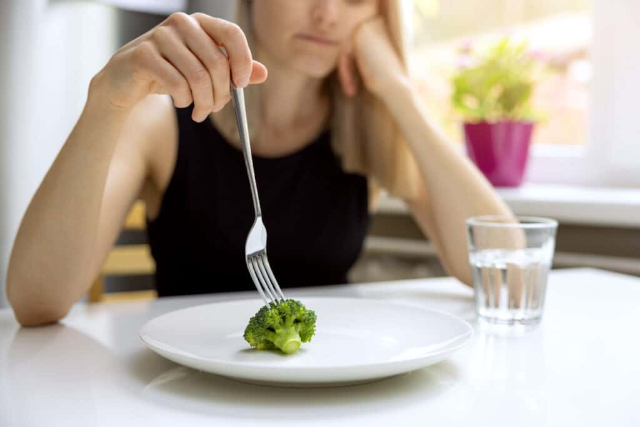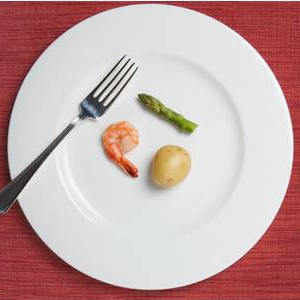We all know about anorexia and bulimia – fasting and gorging to extremes. But now there’s a new eating disorder in the spotlight: orthorexia. It’s defined as a fixation on ‘clean eating’. And it’s a genuine health hazard…

Orthorexia is is a relatively recently recognised affliction, striking ‘certain susceptible individuals in certain life contexts’. It involves a compulsion to ‘eat clean’…
‘Clean’ eating
‘Clean eating’ has been around for some time. The Mayo Clinic explains: “The main reason to take on clean eating is the health benefits of consuming foods rich in nutrient content directly from the earth that have not been overly processed.
“Most Americans eat a diet rich in heavily processed foods which have been made from synthetic ingredients, and packed with fat, sugar, sodium, chemicals, preservatives, food dyes and other additives your body doesn’t quite know what to do with. These additional items may be detrimental to your overall health and well-being.
“Clean eating nourishes your body with healthy and nutrient-dense foods. Clean foods fill your body with plentiful vitamins and minerals, high-quality protein and healthy fats, which improve heart and brain health, assist with weight management, build a stronger immune system and increase energy levels, among other benefits. Foods in their natural state are more flavorful.”
Too much of a good thing?
But Dr. Jennifer Gaudiani, an eating disorder specialist, and founder and medical director of the Gaudiani Clinic in Denver, says avid ‘clean eaters’ can go over the edge. And eat themselves into danger. A November 2023 study data-mined the health records of including 30,476 individuals from 18 countries. It found that 3 out of 10 participants showed signs of orthorexia.
Compusive ‘clean eating’ can result in an unbalanced diet, which leads to nutritional shortfalls in some key areas. That leads to health issues. And those issues, in turn, can lead to ‘a lot of anxiety’.
Often missed
Orthorexia often goes unnoticed by family physicians and other health practitioners because it’s focused on healthy eating. Not on some known unhealthy behaviour.
Jason Wood is director of community engagement at the National Association of Anorexia Nervosa and Associated Disorders (ANAD). He’s also a recovering othrorexia sufferer.
Wood told CTV News he just kind of slipped into orthorexia over a span of years. “The lack of understanding around this condition kept Wood’s friends and family from raising concerns — sometimes applauding his efforts to stick with rigid eating principles — even as he withdrew from friends and lost so much weight he couldn’t keep himself warm.”
“Over the years, Wood said his list of unhealthy foods grew and those considered healthy kept shrinking until he found himself leaving parties because he couldn’t find anything he would allow himself to eat — and that left him with a lot of anxiety.”
That, in a nutshell, is how orthorexia in manifests itself.
There is a cure…
Fortunately for those afflicted with orthorexia, there is a therapy regime that can pull them out of their hole. It’s similar in many ways to the programs already used to help anorexics ans bulimics re-enter the ‘normal’ eating world.
If you think you or a loved one is suffering from orthorexia, ask some questions and observe carefully at mealtimes. If you think there truly is a problem, you should contact a eating disorder specialist who is ‘woke’ to orthorexia, recommends therapist Jennifer Rollin, founder of The Eating Disorder Center in Rockville, Maryland.
They’ll put together a team including therapists and dieticians who will work together to help the patient ‘reframe’ their ideas around healthy eating and what it means.
… And it works
The orthorexia therapy program works. And Wood is living proof. It’s now been 4 years since he ‘hit rock bottom’, and started reaching out for help.
“I feel like I’m starting to live my life again,” Wood said. “I’m getting to take all of that time that I used to spend thinking about food and apply it to other aspects of my life. That has been, that’s been really great.”
My take
I can see how orthorexia can be as dangerous – and possibly deadly – as severe anorexia or bulimia. And I think it’s important that folks be aware of this new affliction. Sometimes it takes someone other than the sufferer to recognise the signs and point the way to treatment.
~ Maggie J.

